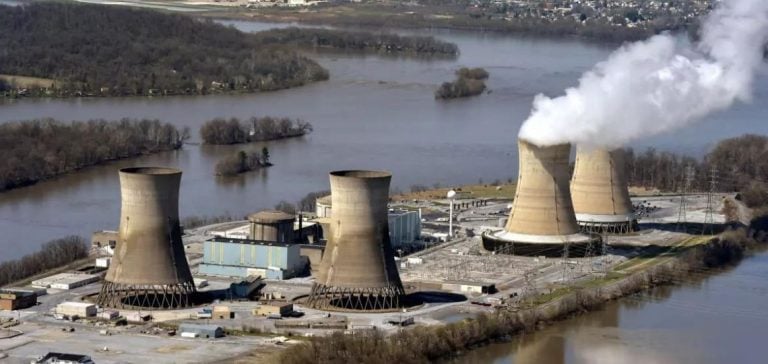U.S.-based Constellation has announced the revival of Three Mile Island Nuclear Unit 1 in Pennsylvania, as part of a 20-year agreement with Microsoft.
The plant, closed in 2019 for economic reasons, will regain its 837-megawatt production capacity to meet the growing energy needs of the IT giant’s data centers.
The unit was unaffected by the 1979 accident, enabling Constellation to reactivate it today to provide reliable, uninterrupted power.
Digital infrastructures, especially those linked to artificial intelligence, require increasing volumes of energy.
For Microsoft, nuclear energy is becoming a key solution for supporting its development while limiting the carbon footprint of its operations. The agreement between the two companies is not a first, a similar partnership having been signed to power a data center in Virginia in 2023.
Investment needed for modernization
To ensure the restart of Three Mile Island Unit 1, Constellation is planning major investments in equipment upgrades.
These improvements include refurbishment of the turbine, generator and cooling systems.
Before any reactivation, the site will have to obtain approval from the U.S. Nuclear Regulatory Commission after a thorough assessment of safety and environmental impact aspects.
The project is not limited to reviving energy production.
It will also create 3,400 direct and indirect jobs, providing considerable support for the local economy and strengthening the country’s energy security.
Constellation emphasizes that this revival is a response to the growing demand for energy in the technology sector, particularly for Microsoft’s critical infrastructures.
A return to nuclear power in the face of energy challenges
The energy demand of data centers, particularly in the context of artificial intelligence, is putting pressure on electricity generation capacity.
Microsoft, together with other investors, is committed to financing energy infrastructure projects.
In September 2024, the company teamed up with BlackRock to inject $100 billion into the development of new generation capacity and data center expansion.
This surge in AI technologies coincides with a gradual comeback for nuclear power.
Long overshadowed by renewable sources such as wind and solar power, nuclear energy is regaining a central place in decarbonization strategies.
Although the sector suffered a major blow after the Fukushima disaster in 2011, projects such as Three Mile Island illustrate the willingness of companies and governments to explore this energy source once again to ensure stable, non-intermittent production.
Nuclear revival in an international context
The project to revive Three Mile Island comes at a time when nuclear power is increasingly seen as an effective solution for reducing CO2 emissions while guaranteeing the stability of electricity grids.
According to the International Energy Agency (IEA), global nuclear capacity should more than double by 2050 to meet climate targets and guarantee energy security.
However, this progress remains modest, with only five new reactors commissioned by 2023, representing a total capacity of 5 GW.
In the USA, in addition to Three Mile Island, other revival projects are underway.
In 2022, Holtec International, another energy company, announced its intention to restart the Palisades power plant, closed for economic reasons.
These initiatives testify to an evolution in American energy policies, which are reassessing the importance of nuclear power in a context of strong growth in electricity demand.
The case of Three Mile Island is emblematic of a new era for nuclear power.
Faced with the massive electricity needs of data centers and technology infrastructures, companies like Microsoft are turning to non-CO2 emitting energy sources to meet these challenges.
The agreement with Constellation shows that nuclear power remains a competitive solution, capable of meeting decarbonization imperatives and providing stable electricity over the long term.






















